UPDATED: October 2023
As part of our whole institution approach to creating a sustainable future, every division has undertaken initiatives to make an impact on campus and in our communities.
Energy
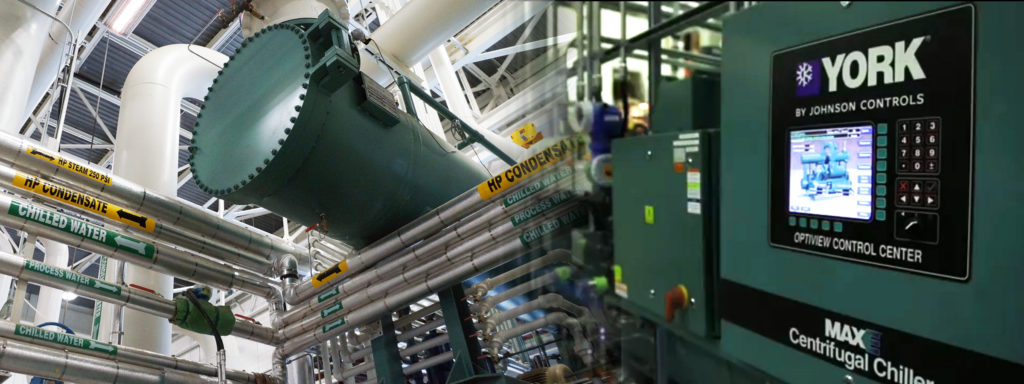
- Over 30% reduction in energy use intensity since 2007
- 34,730,786 kWh saved in annual electricity consumption
- Reduced emissions have resulted in $5.2M received in utility rebates
York University has undertaken a variety of energy management programs over the past 10 years, including the installation and expansion of the building automation system, implementation of two cogeneration units, modifications to the district heating and cooling plants, implementation of energy efficient lighting technologies, motor replacement, and installation of green roofs. These programs have yielded good returns on investment by identifying energy wastage, and the University is now planning to expand on these successes to implement a broader, more comprehensive energy management program to further reduce operation costs, improve environmental performance and to help renew aging infrastructure.
Waste Management

- 68% waste diversion
- Plastic water bottle ban
- Organic waste program
- Surplus asset management
- Free store and borrowing centre
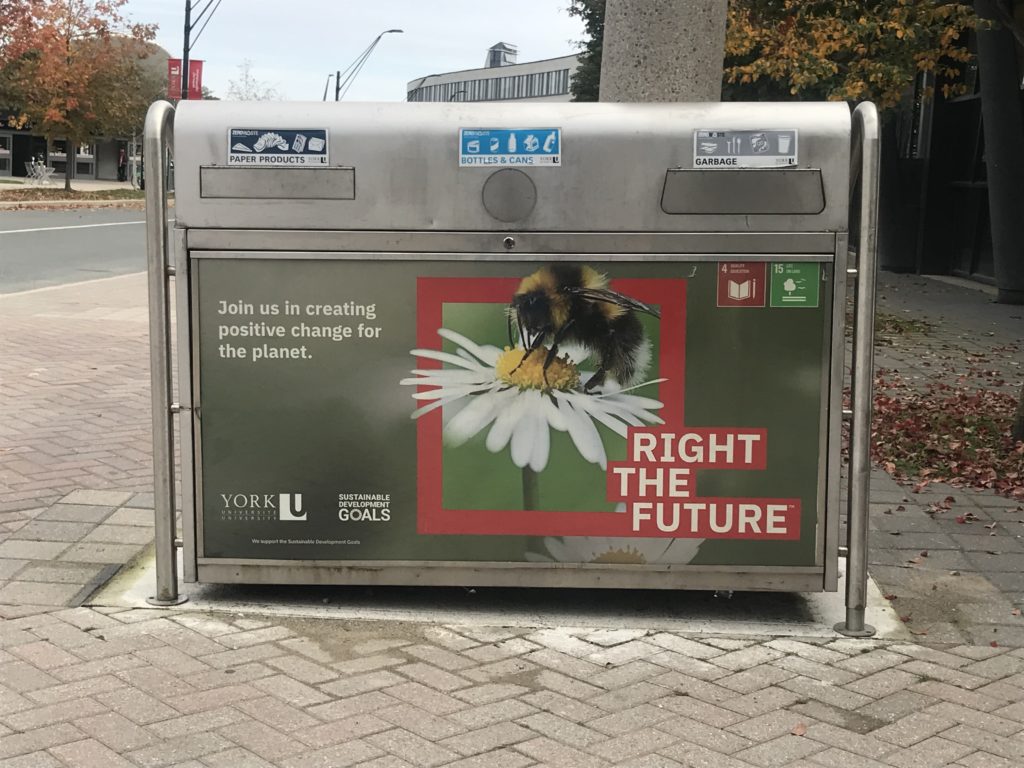
- 73 tri-bins across Keele and Glendon campuses
In 1990 York University's Facilities Services department formalized a comprehensive, multi-faceted waste management and diversion program. Part of this was the ZeroWaste program to build on existing waste diversion and green cleaning initiatives. By 2019 the university had diverted 70.73% of the waste generated on its campuses.
Surplus Asset Management
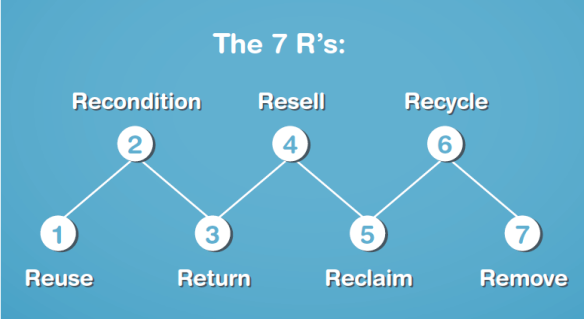
Transport
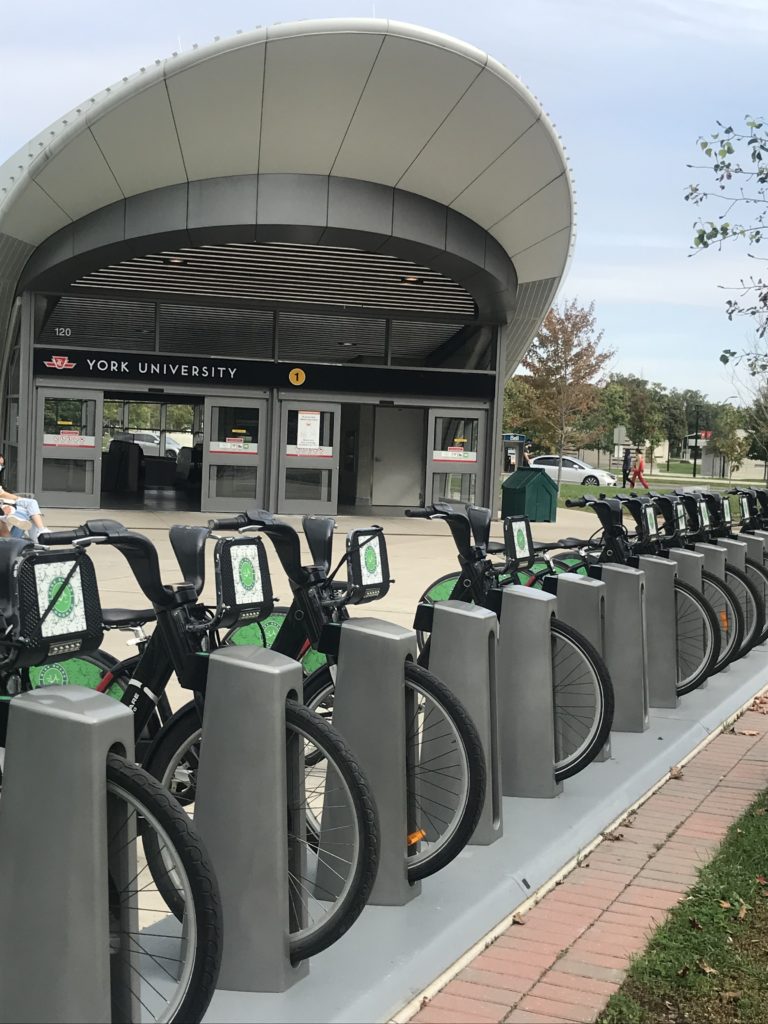
- 80% commute using sustainable methods
- Inter-campus electric bus services
- Metrolinx Smart Commute program
- Cycling infrastructure
- Car share program
Transportation Services encourages commuting to the University through alternative transportation such as public transit, carpools, bicycling or walking. The new in 2024 electric buses contribute to York University’s target of achieving net-zero emissions by 2040, by reducing both direct and indirect emissions. They will help build on the University’s already strong commitment to sustainability, as evidenced by continued recognition as one of Canada’s Greenest Employers for the past 12 years and the new designation the University received last year as a “Best University for Commuters.” York was the first Canadian institution to ever earn such a designation, joining the ranks of institutions such as Harvard University, Princeton, Stanford and Yale, which have also been commended for their sustainable travel options. Currently, more than 80% of York University students, faculty and staff use sustainable means of transportation to campus.
Water & Wastewater Management
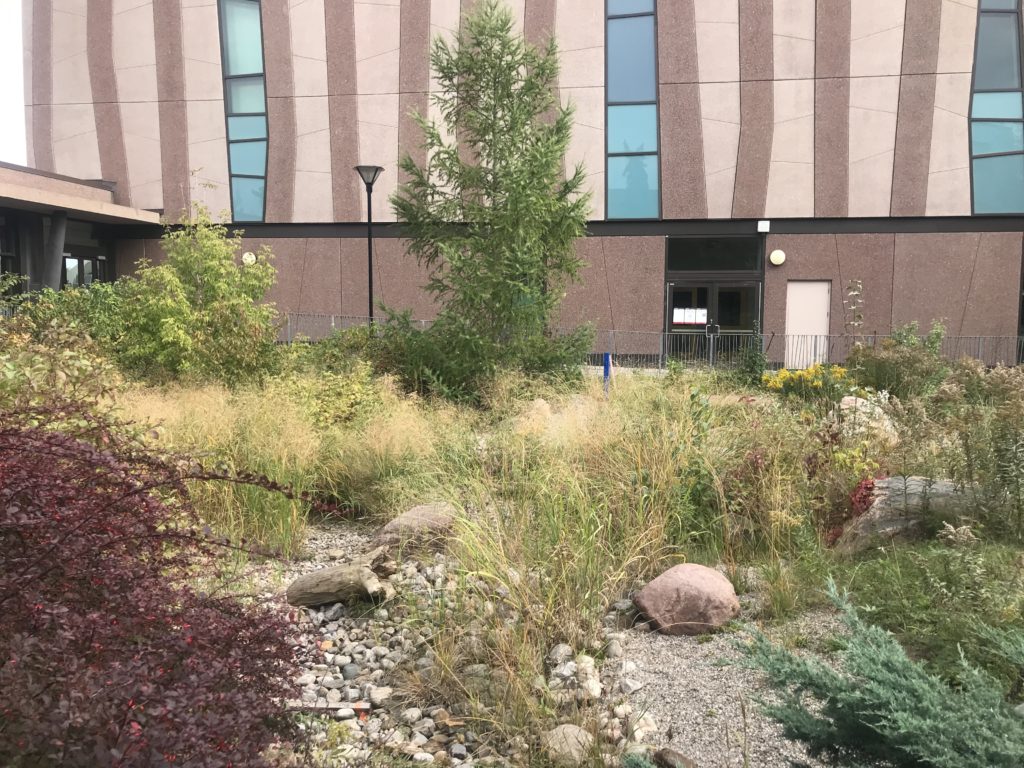
- Green building design and retrofit
- Grounds maintenance
- Water refill stations
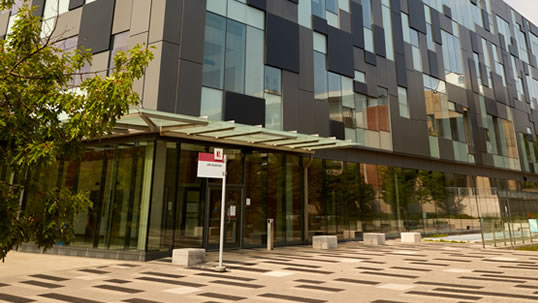
York's Life Sciences Building
- On-site stormwater attenuation
- Filtration and infiltration systems
- Rainwater recycling system
- Green roof
York University has a number of campus-wide initiatives aimed at water conservation and reuse, from green building design and retrofit to grounds maintenance to the installation of water refill stations across both the Keele and Glendon campuses.
Food Services

- Local farmers’ market
- Vegan/vegetarian menu options
- Community garden
- Student-run co-op Lunik Café
York University has a variety of ongoing sustainability initiatives relating to food. From fair trade coffee to organic and healthy food options to community gardens, York is striving to reduce the environmental impacts of the food that is consumed on our campuses to create positive change. Some recent initiatives include:
Procurement
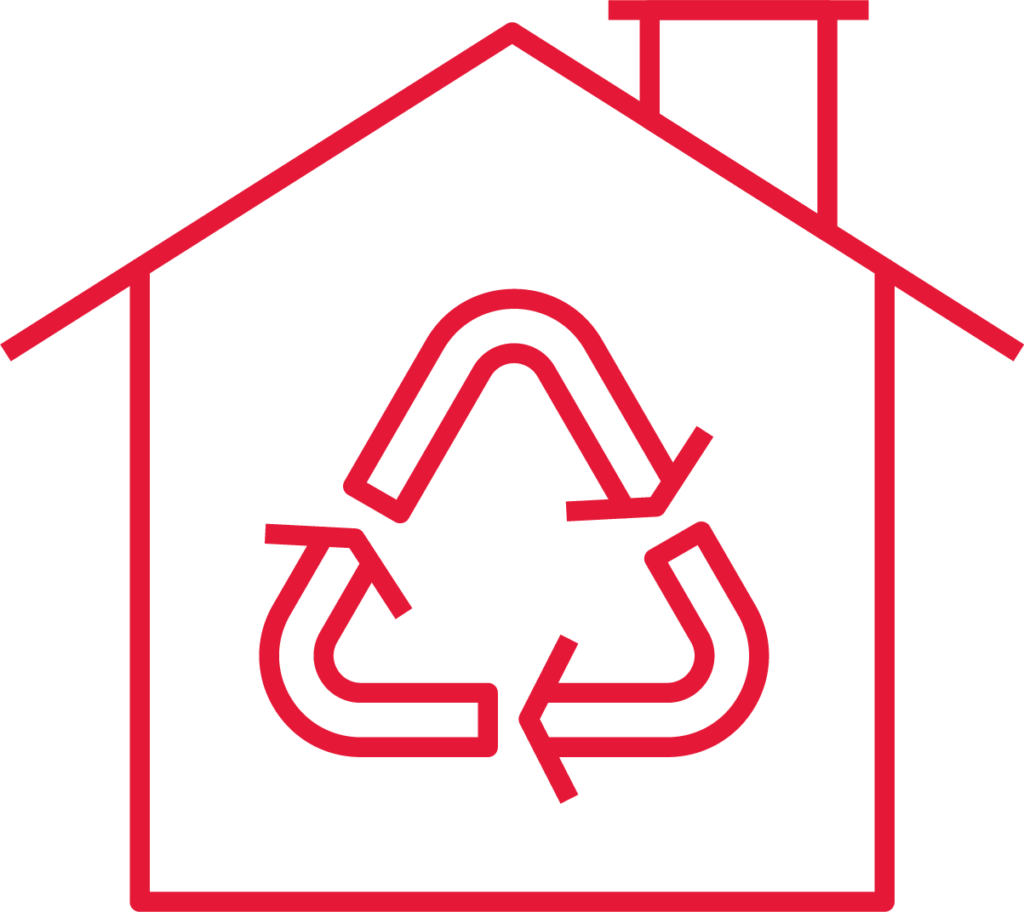
- Social procurement policy
- Fair trade clothing
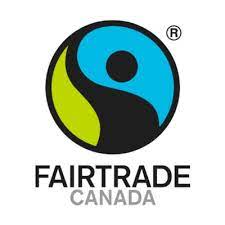
Procurement Services at York University incorporates sustainability considerations into procurement policies and procedures wherever possible. This includes the purchase of environmentally preferable goods and services, and the integration of environmental performance considerations into the procurement process, including planning, acquisition, use and disposal. Environmentally preferable goods and services are those that have a lesser or reduced impact on the environment over the life cycle of the good or service, when compared with competing goods or services serving the same purpose. Environmental performance considerations include, among other things: the reduction of greenhouse gas emissions and air contaminants; improved energy and water efficiency; reduced waste and support of reuse and recycling; the use of renewable resources; reduced hazardous waste; and reduced toxic and hazardous substances.
As part of the York University Policy on Procurement of Goods and Services, the University gives preference to suppliers of environmentally friendly products and services, and does not purchase apparel, including items with the University logo or trademark, from suppliers under investigation or being monitored by an external monitoring agency or third party for violating fair labour practices. The University Bookstore carries a complete line of sustainable and fair trade products.
In accordance with the University Policy on Procurement of Goods and Services, only FSC certified paper and Energy Star rated appliances and electronics are purchased.
In January 2020, York University released its Social Procurement Policy, making York one of the first universities in Canada with a comprehensive Social Procurement Policy.
Social procurement considers how procurement, the process of buying goods and services, can positively impact the social well-being of communities and assist to reduce poverty, promote economic and social inclusion, and support local economic development and social enterprise. It fosters an enabling environment by embedding supply chain diversity and workforce development initiatives within procurement processes to promote inclusive economic growth.
York University is committed to use its purchasing power to benefit local economies and to provide fair access to its procurement services by providing additional opportunities to underrepresented businesses and communities. York's Social Procurement Policy establishes the framework of values and principles for implementing these opportunities.
For more information on purchasing at York University, please visit Procurement Services.
Building Design and Campus Planning
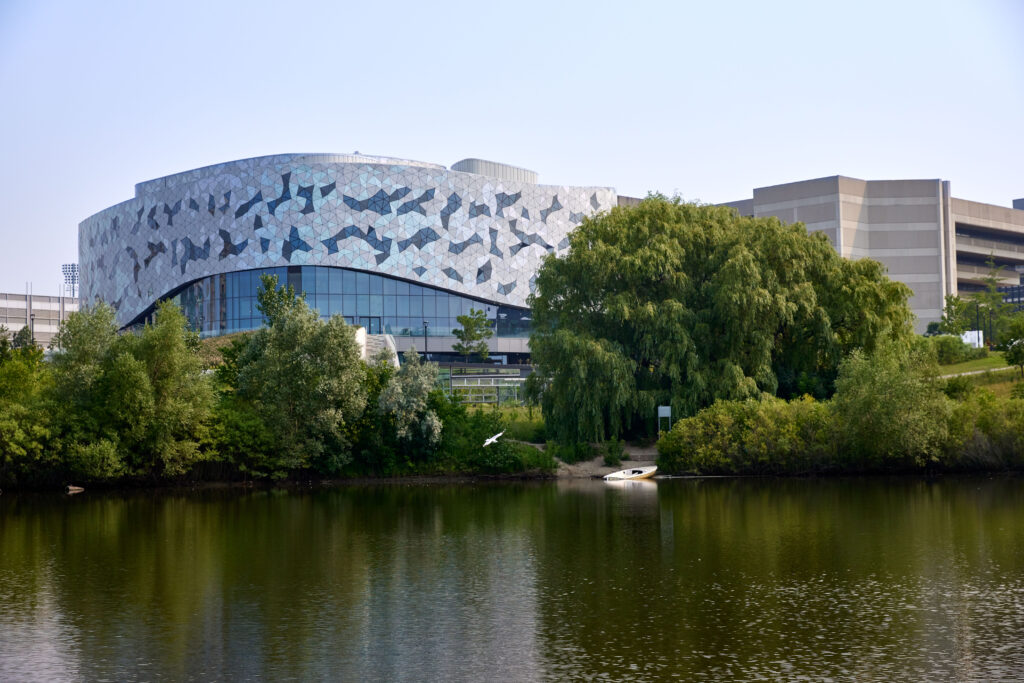
York University's masterplan and campus vision calls for the university to promote sustainable capital projects and building design. York is constantly updating and constructing new buildings to be with national and international green building designs promoting water efficient planting and plumbing, low emissions construction, reduced energy usage, promoting sustainable land redevelopment, usage of recycled building materials and green technologies as well as encouraging sustainable modes of transportation. York seeks to meet the local requirements of Toronto Green Standard (TGS) which is Toronto’s sustainable design and performance requirements for new developments since 2010.
To learn more, visit the Building Design and Campus Planning page.
Sustainable Investing
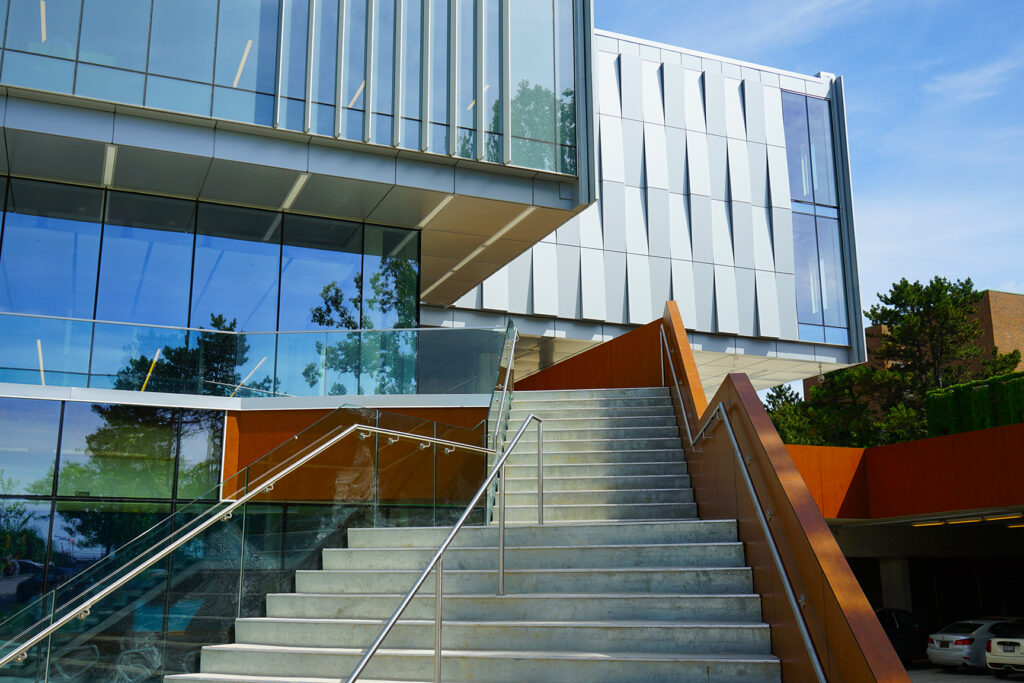
Steadfast in its commitment to sustainability and to ensuring sustainability is embedded into all aspects of the University’s operations, York’s Sustainability Strategy clearly delineates this in one of its goals, PL3: York University integrates sustainability into its overall financial plan, integrated resource plans and procurement, and is a responsible investor with respect to sustainability.
York University is committed to sustainable investing built around a strategy that integrates environmental, social, and governance (ESG) factors, into the overall financial management of its investment portfolios.
To learn more, visit the Finance website.
